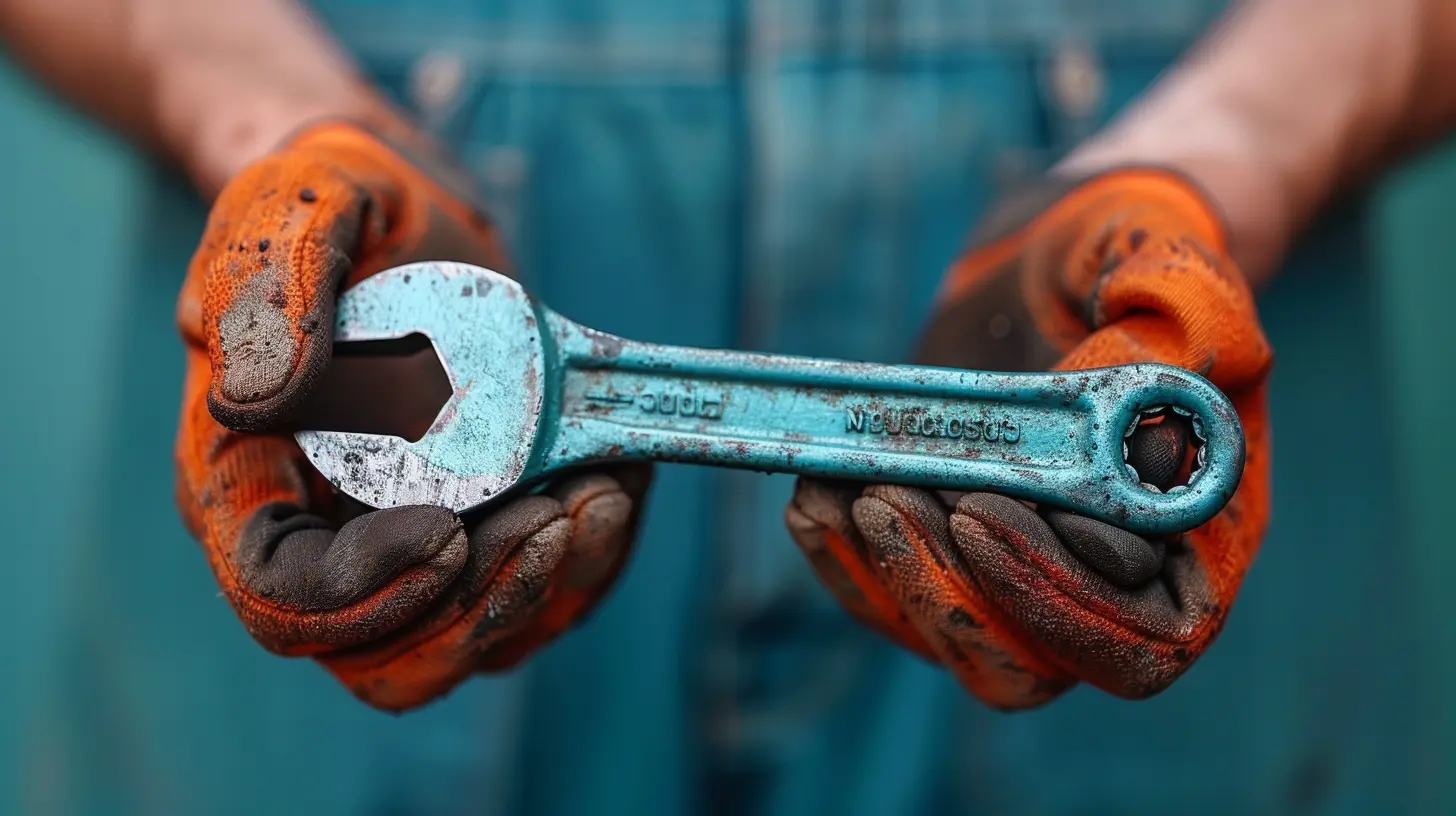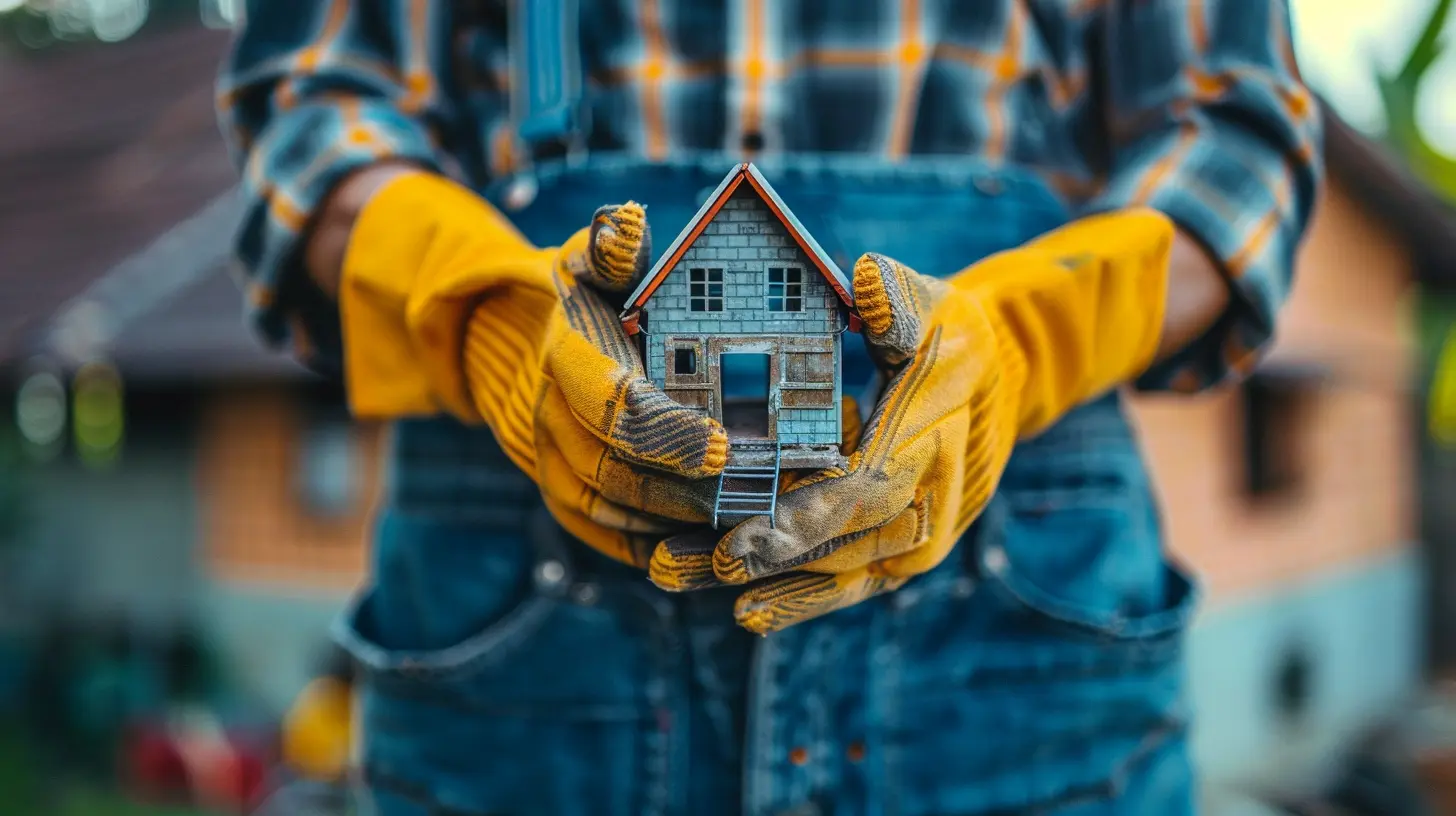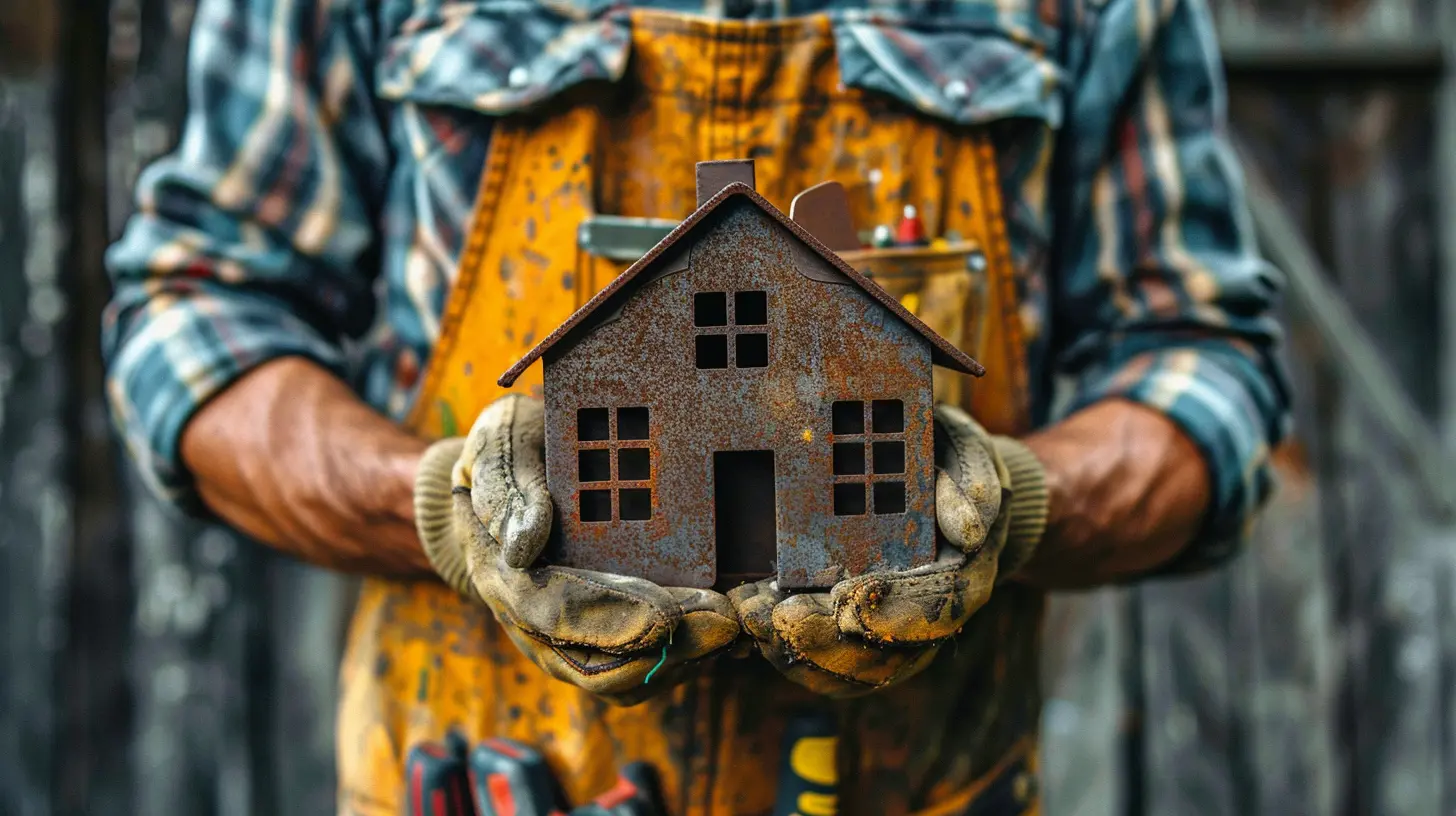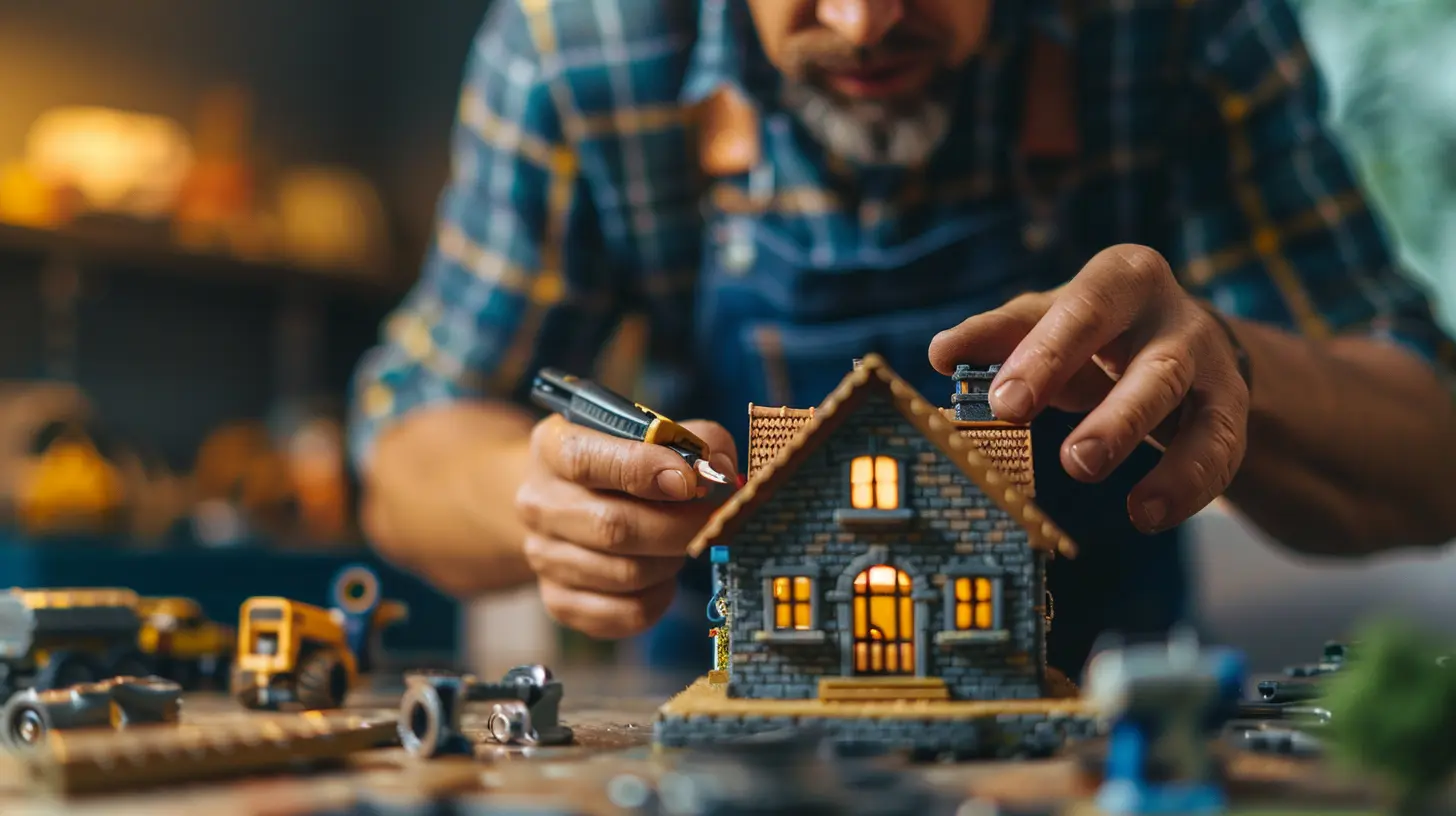Avoiding Tenant Complaints: Proactive Maintenance Habits for Landlords
14 November 2025
Being a landlord isn’t just about collecting rent checks at the end of the month. It’s about keeping your property in top shape, making sure tenants are happy, and avoiding those dreaded late-night maintenance calls.
Tenant complaints can be a real headache, but the good news is—they're often preventable! By adopting proactive maintenance habits, you can reduce stress, keep your tenants satisfied, and protect your investment. So, let’s dive into some smart strategies that will help you stay ahead of the game. 
Why Proactive Maintenance Matters
Imagine this: Your tenant calls in the middle of the night because the heating has stopped working during the coldest week of winter. Now you’re scrambling to find a repair technician, and your tenant is unhappy.Situations like this are why proactive maintenance is crucial. Regular upkeep prevents small issues from turning into major (and costly) repairs. Plus, happy tenants are more likely to renew their lease, reducing turnover costs.
Wouldn’t it be great if you could avoid those emergency maintenance calls altogether? Well, you can! Let’s talk about how. 
1. Schedule Routine Property Inspections
Think of inspections as your landlord superpower. They help you catch small issues before they become big (expensive) disasters.How often should you inspect?
- Move-in & Move-out inspections – Catch pre-existing issues and hold tenants accountable for damage.
- Quarterly or semi-annual inspections – Check for leaks, HVAC issues, and general wear and tear.
- Annual inspections – A more detailed check-up, ensuring everything is in top condition.
A well-maintained property means fewer complaints and happier tenants. Plus, regular visits show tenants that you care about the home they live in. 
2. Keep Up With Seasonal Maintenance
Each season brings its own set of property challenges. Keeping up with these will ensure that your rental stays in top shape year-round.Spring & Summer:
☑ Inspect the roof and gutters for winter damage.☑ Service the air conditioning unit.
☑ Check for plumbing leaks and water damage.
☑ Test smoke detectors and carbon monoxide alarms.
Fall & Winter:
☑ Clean out gutters before heavy rain or snow.☑ Inspect the heater/furnace before freezing temperatures hit.
☑ Seal cracks to prevent cold air leaks (and higher energy bills).
☑ Ensure sidewalks and driveways are clear of debris and safe for winter weather.
Think of seasonal maintenance like prepping for a road trip – you wouldn’t hit the highway without checking your car’s tires and oil, right? Same goes for your rental property! 
3. Respond Quickly to Maintenance Requests
Picture this: A tenant reports a leaky faucet, but you ignore it because it seems minor. A month later, that tiny leak turns into water damage, mold, and an expensive plumbing bill.Responding quickly doesn’t just prevent larger problems—it shows tenants you care!
Here’s how you can streamline maintenance requests:
✅ Set up a maintenance request system (email, online portal, or an easy-to-use app).
✅ Have a trusted handyman or contractor on standby for quick fixes.
✅ Follow up with tenants to ensure the issue was resolved to their satisfaction.
Fast responses build trust, and trust leads to long-term tenants.
4. Invest in Quality Repairs (No Quick Fixes!)
It’s tempting to go for the cheapest, quickest repair, but quick fixes often lead to recurring problems.For instance, patching up a leaky roof instead of fully repairing it might save money now, but if that patch fails during a storm, you’re looking at major water damage (and a very unhappy tenant).
Smart landlord tip: Always choose durable materials and trusted professionals for repairs. A little extra investment upfront saves you money (and headaches) in the long run.
5. Educate Tenants on Proper Property Care
Believe it or not, some maintenance complaints arise simply because tenants don’t know how to take care of the property.A simple welcome guide with helpful tips can go a long way. You can include:
- How to reset a tripped circuit breaker.
- The best ways to prevent clogged drains.
- What NOT to flush down the toilet.
- How to properly use the HVAC system.
When tenants know the basics, they’re less likely to accidentally cause damage (or call you for minor issues).
6. Have a Preventative Maintenance Plan
Instead of waiting for things to break, stay ahead with a checklist of preventative tasks.Preventative Maintenance Must-Dos:
✔ Schedule regular HVAC servicing.✔ Check for leaks under sinks and around toilets.
✔ Inspect appliances for wear and tear.
✔ Re-caulk showers, sinks, and tubs as needed.
✔ Test all locks, doors, and windows for security and function.
Think of your rental like a well-oiled machine—regular maintenance keeps everything running smoothly.
7. Build Good Relationships With Tenants
At the end of the day, being a great landlord isn’t just about maintaining the property—it’s about maintaining a good relationship with your tenants.Simple gestures like:
- Checking in periodically – A quick text to ask how everything is going.
- Being approachable – Tenants should feel comfortable reporting issues.
- Showing appreciation – A small holiday card or thank-you note can go a long way.
Happy tenants take better care of the property, pay rent on time, and stick around longer. That’s a win-win for everyone!
8. Keep Communication Clear and Open
Clear communication prevents misunderstandings, reduces frustrations, and sets expectations.Tips for better communication:
☑ Provide tenants with a contact method for maintenance requests.
☑ Outline policies in a welcome packet.
☑ Be transparent about response times and repair processes.
When tenants know what to expect, they’re less likely to feel frustrated over delays or issues.
9. Stay Updated on Local Rental Laws
Nothing puts a landlord in hot water faster than violating housing laws. Regularly review landlord-tenant laws in your area to ensure compliance.Common legal issues to keep an eye on:
- Security deposit regulations.
- Proper eviction procedures.
- Required maintenance obligations.
- Habitability laws.
Following the rules keeps you out of legal trouble and your tenants safe and happy.
Final Thoughts
Tenant complaints are inevitable, but with proactive maintenance, you can drastically reduce them. By staying ahead of repairs, responding quickly, and fostering good relationships, you’ll not only keep your tenants happy but also protect your investment for the long haul.Being a landlord isn’t just about fixing things when they break—it’s about preventing problems before they even start. And when you do that? You create a smooth, stress-free experience for both you and your tenants.
So, what proactive maintenance habit are you going to implement first?
all images in this post were generated using AI tools
Category:
Property MaintenanceAuthor:

Vincent Clayton
Discussion
rate this article
1 comments
Tamsin Mullen
Great insights! Proactive maintenance not only enhances tenant satisfaction but also strengthens landlord-tenant relationships. A little effort goes a long way in fostering a harmonious living environment. Thank you for sharing!
November 15, 2025 at 5:52 AM

Vincent Clayton
Thank you for your thoughtful comment! I'm glad you found the insights valuable. Prioritizing proactive maintenance truly benefits both tenants and landlords!


